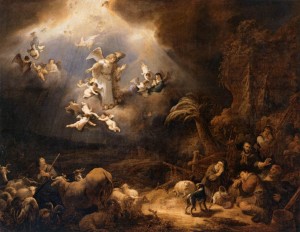Acts 27:23-24: Do Not Fear – Part VIII
Monday, January 8, 2024
Paul is arrested and held as a prisoner for his faith in the risen Christ. As he journeys to Rome, he undergoes a number of trials, and it is into this environment, when fear might take over, that Paul is visited by a messenger from God.
For this very night an angel of the God to whom I belong and whom I serve stood before me saying, “Do not be afraid, Paul; you must stand before Caesar; and behold, God has granted you all those who are sailing with you”. (NASB)
Paul tells us that when we experience darkness and anxiety, God does not desert us.
For last night an angel of the God to whom I belong and whom I worship came to me and said, “Don’t be afraid, Paul! You must stand before the Emperor. And God in his goodness to you has spared the lives of all those who are sailing with you”. (GNT)
Paul reminds us that when great power overtakes us, the risen Christ brings us the courage to resist corruption.
“Last night God’s angel stood at my side, an angel of this God I serve, saying to me, ‘Don’t give up, Paul. You’re going to stand before Caesar yet—and everyone sailing with you is also going to make it.’ So, dear friends, take heart. I believe God will do exactly what he told me. But we’re going to shipwreck on some island or other.” (MSG)
Paul says that a life lived in Christ will never be smooth; and he tells us that when shipwrecks occur in our lives – as they always will – Christ will make the impossible possible.
Today, as we consider the courage of the shepherds who followed the star to the Bethlehem stable, we might ask ourselves, “What risks are we willing to take as we resist easy comfort? And what shipwrecks are we willing to experience as we follow the bright star of Christ?”
Although Christmastide has closed, we continue to reflect on the renewing power of God’s words to us, “Don’t give up. Do not be afraid”.
Images from: https://thevcs.org/adoration-shepherds and https://en.wikipedia.org/wiki/File:Ludolf_Bakhuizen_-_Shipwreck_during_the_storm_on_1%E2%80%933_March_1694_-_M.Ob.1488_-_National_Museum_in_Warsaw.jpg














